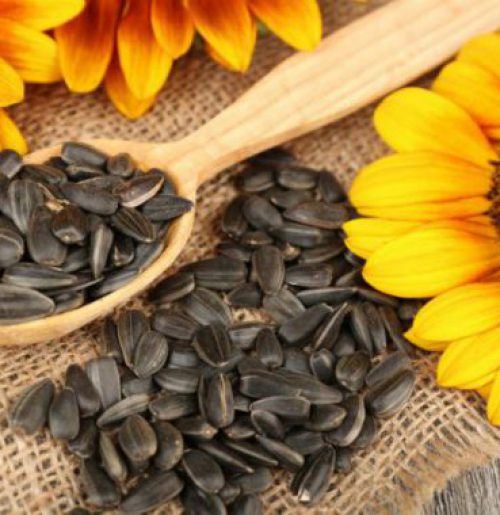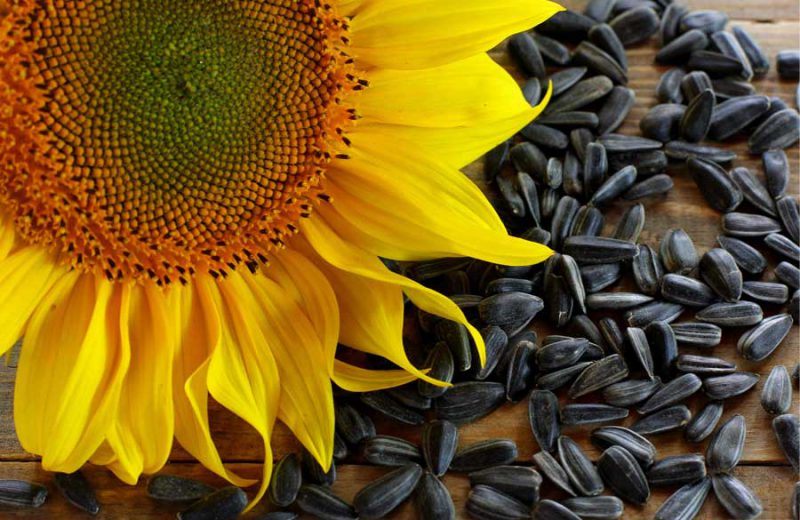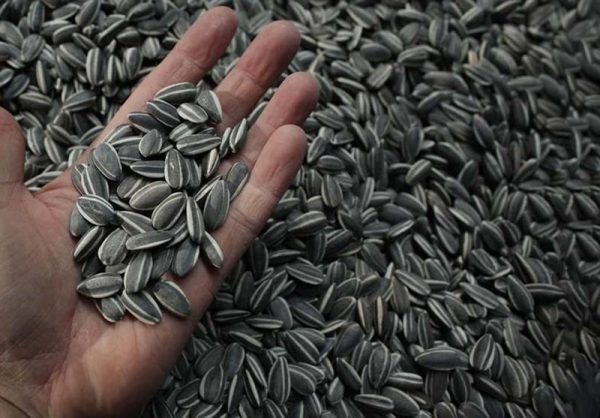Ingredients in 100 grams of sunflower seeds
| Vitamin E | 10-18 mg |
| Vitamin B1 (thiamine) | 0.82 mg |
| Manganese | 0.73 mg |
| magnesium | 44/127 mg |
| Copper | 0.63 mg |
| Selenium | 42/21 mg |
Phosphorus | 8/253 mg |
Vitamin B5 | 43/2 mg |
Folate | 86/81 mcg |

West Sun Of Iran
Info@westsuniran.com

| Vitamin E | 10-18 mg |
| Vitamin B1 (thiamine) | 0.82 mg |
| Manganese | 0.73 mg |
| magnesium | 44/127 mg |
| Copper | 0.63 mg |
| Selenium | 42/21 mg |
Phosphorus | 8/253 mg |
Vitamin B5 | 43/2 mg |
Folate | 86/81 mcg |

Sunflower seeds cover more than 1500 hectares of land in Nahavand city, so that the sunflower produced in the form of nuts, seeds and oil is cultivated in this city and a very large area of farms in Khazal, Zarrin Dasht and Gyan districts are under sunflower cultivation.
Planting, holding and harvesting of this crop is done mechanized and using pressurized irrigation, which reduces consumption and saves time and manpower.
Sunflower crop has different types, including Isfahani, long-white and short, which are grown in Nahavand, two types of long white and short seeds.

Sunflower seeds are a good source of magnesium.
Sunflower seeds are a very rich source of vitamin E, the first fat-dissolving antioxidant. Vitamin E moves throughout the body and neutralizes free radicals in the body that damage molecules and structures that contain fats, such as cell membranes and cholesterol.
Many studies have shown that magnesium helps lower blood pressure and migraine headaches, as well as heart attacks.
Vitamin E in sunflower seeds, by supporting these molecules and tissues, has anti-inflammatory effects that reduce the symptoms of diseases such as asthma, rheumatoid arthritis and osteoarthritis. Vitamin E also reduces intestinal cancer and also reduces the symptoms of hot flashes in postmenopausal women and It also reduces the progression of diabetes complications.
Other benefits of vitamin E include preventing it from causing cardiovascular disease. Vitamin E is one of the most important antioxidants found in cholesterol particles and prevents cholesterol from being oxidized by free radicals. Because after cholesterol is oxidized, it attaches to the walls of blood vessels, and these are the early stages of hardening of the arteries, causing clogging of the arteries or a heart attack.
Low levels of vitamin E in the body can reduce the risk of clogged arteries. Studies on vitamin E have shown that people who take vitamin E in their daily diet are less likely to die of a heart attack.
It is a substance found in plants that have a chemical structure very similar to cholesterol, and when it is sufficient in the diet, it helps lower cholesterol as well as reduce the risk of cancer.
In today’s world, we rarely see anyone who does not have nervous problems. It is interesting to know that with the magnesium in sunflower seeds, we can calm the nerves and blood vessels. Sunflower seeds are a rich and good source of magnesium.
Researchers have shown that magnesium helps lower blood pressure and migraine headaches, as well as heart attacks.
Magnesium is also very good for bone health, and about two-thirds of the magnesium in the body is found in bones.
In many nerve cells, magnesium acts as a barrier to the entry of calcium into nerve cells. If there is a low level of calcium in the body, calcium enters the body easily and the activity of nerve cells decreases.
Magnesium deficiency causes high blood pressure, muscle cramps (including heart muscle cramps, airways that are a sign of asthma) and migraine headaches, as well as fatigue and stress.
Sunflower essential oil is used to heal wounds and lower blood pressure. Sunflower leaf essential oil has antimicrobial properties. In ancient Iranian medicine and in Chinese medicine, all parts of the sunflower plant are used.
Note: Sunflower seeds can be used to treat the following diseases.